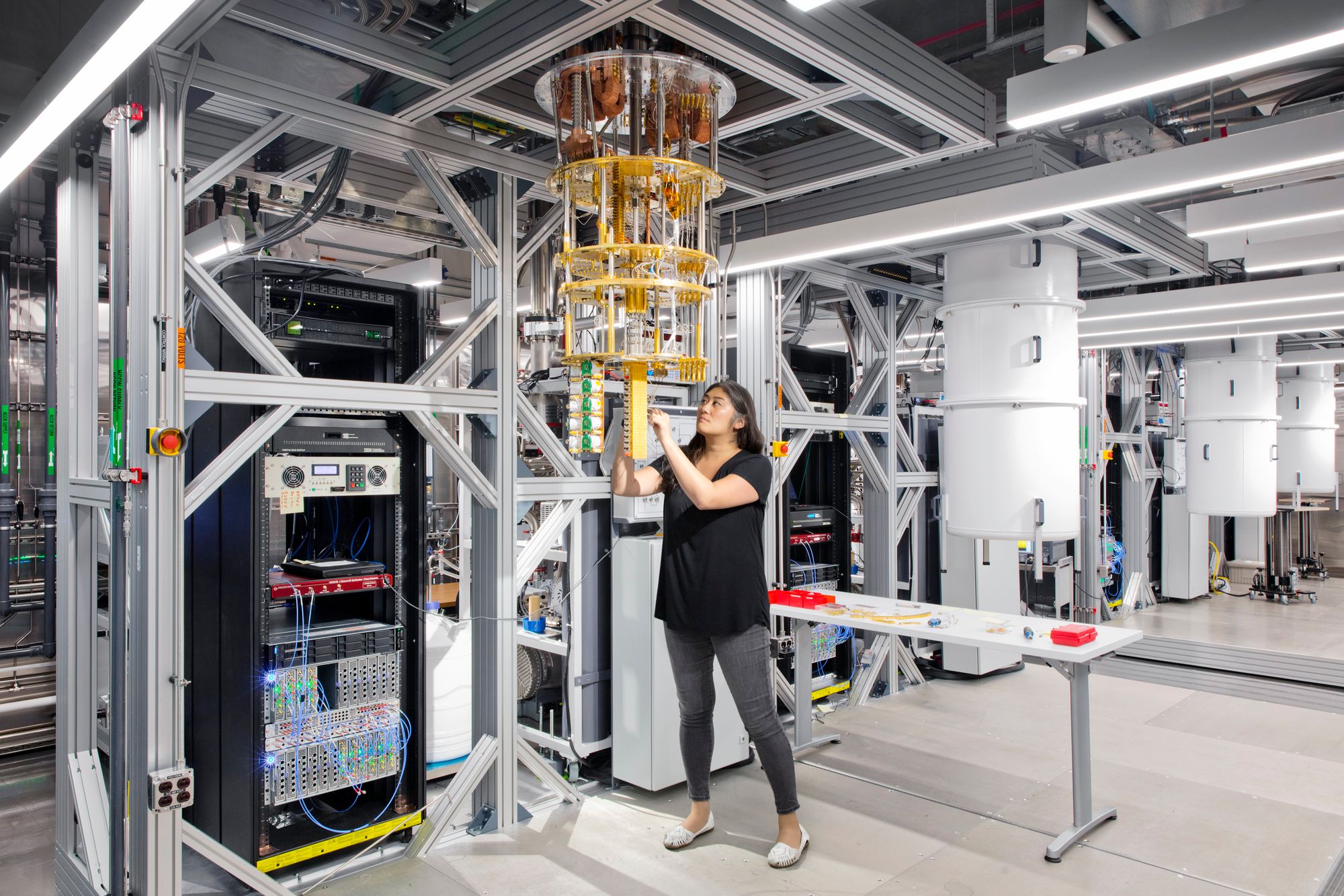By Lucas Mockeridge, Second year, Computer Science
The Spring Budget featured a ten-year plan to spend £2.5bn on quantum technology. It sees the UK join the US and China in the race to become the global centre for quantum. The winner may dominate science for years to come.
Quantum technologies harness the principles of quantum mechanics, the maths behind our explanations of how atomic and subatomic particles behave. The first quantum revolution brought the atomic clocks in our satellites, the MRI machines in our hospitals, and the semiconductors in our smartphones.
The quantum computer is the face of the next revolution. Contrary to popular belief, it won’t replace the classical computer. In fact, classical and quantum computers solve the same set of problems. But in theory, quantum computers can solve some problems in minutes that would take their classical counterparts longer than the age of the universe.
For instance, finding the prime factors of an integer is a very difficult problem to solve classically, so much so that it is used to secure some internet encryption methods. In 1994, mathematician Peter Shor proposed a way to solve this problem which, with the right quantum computer, could break these encryption methods and threaten our security on the Internet.

However, the primary use of quantum computers will most likely be simulating quantum physics and chemistry, just as Nobel laureate Richard Feynman envisioned it to be when he coined the term ‘quantum computer’. This will allow scientists to perform new experiments, potentially accelerating progress, from climate change to drug discovery.
Even so, some scientists believe quantum computers can go beyond simulation. Last month, Bristol physicist Hatim Salih proposed a new type of quantum computer to realise ‘counterportation’ - teleportation without the exchange of particles. This would create the world’s first wormhole, a bridge across space-time, which physicists could use to test their theories.
The differences between quantum computers and their classical counterparts begin at the way they store information. Classical computers use bits, the ones and zeros of binary; quantum computers use quantum bits (qubits). Qubits can not only represent zero or one, but also a weighted combination of the two. Though when measured, they must represent one of the two states.
The problem with quantum computers is that they’re incredibly difficult to build. Each qubit must be isolated from its environment, otherwise it’ll be prematurely measured, causing errors to creep into computation. The larger the quantum computer, the harder this is to prevent.
Quantum error correction is believed to be the only way to reduce error to the point where large-scale quantum computers become useful. The technique can treat thousands of physical qubits as one for computation. For practical use, error rates still need to improve by at least a thousand times.
Until then, quantum computers will remain oddities in the labs of governments and major players like Google and IBM. They’re believed to be decades away from fulfilling their potential.
From healthcare imaging to secure communications and reliable navigation, here's how the National Quantum Technologies Programme is unlocking the potential of quantum tech to bring cutting-edge discoveries from the lab into our lives: https://t.co/j2cj9Px9qn #WorldQuantumDay pic.twitter.com/JnKSFLnlqF
— UK Research and Innovation (@UKRI_News) April 14, 2023
However, there are two quantum technologies that, while not grabbing the headlines, are much closer to being used in practice. The first is quantum sensing. It promises smaller, more precise sensors, allowing scientists to collect more accurate data. This would benefit areas like autonomous transport, high-speed trading, and medical imaging.
The second is quantum communication which promises more secure data transmission. For instance, quantum key distribution offers a way of sharing a random secret key for encrypted communication, with built-in eavesdropping detection. This could not only mitigate the risk posed by Shor’s algorithm, but also form the basis of larger communication networks - even a quantum internet.
Quantum technology may prove to be very lucrative in the long run. By just 2030, the quantum computing market alone is estimated to be worth at least £3.6bn, with an annual growth rate of 28.2 per cent. Moreover, according to the Boston Consulting Group, quantum computing will improve the earnings of users before tax and interest by between £360bn and £680bn annually by 2050.
To capture these economic benefits, the Chancellor plans to spend £2.5bn on quantum technology over the next decade. This sees the UK leapfrog Japan and the US in pledged public spending, trailing only the EU and China. Nevertheless, the US and China lead the way in all things quantum, with the latter planning to spend £12.3bn over just five years.
Despite all the investment, the next quantum revolution won’t put quantum computers in our pockets or on our desks. But it may mark the dawn of a new scientific era. If the UK is to be first to greet the dawn, the Chancellor may have to dig even deeper into his pockets.
Featured image: Flickr/IBM Research
Do you think the UK is right to be investing in quantum technologies?









